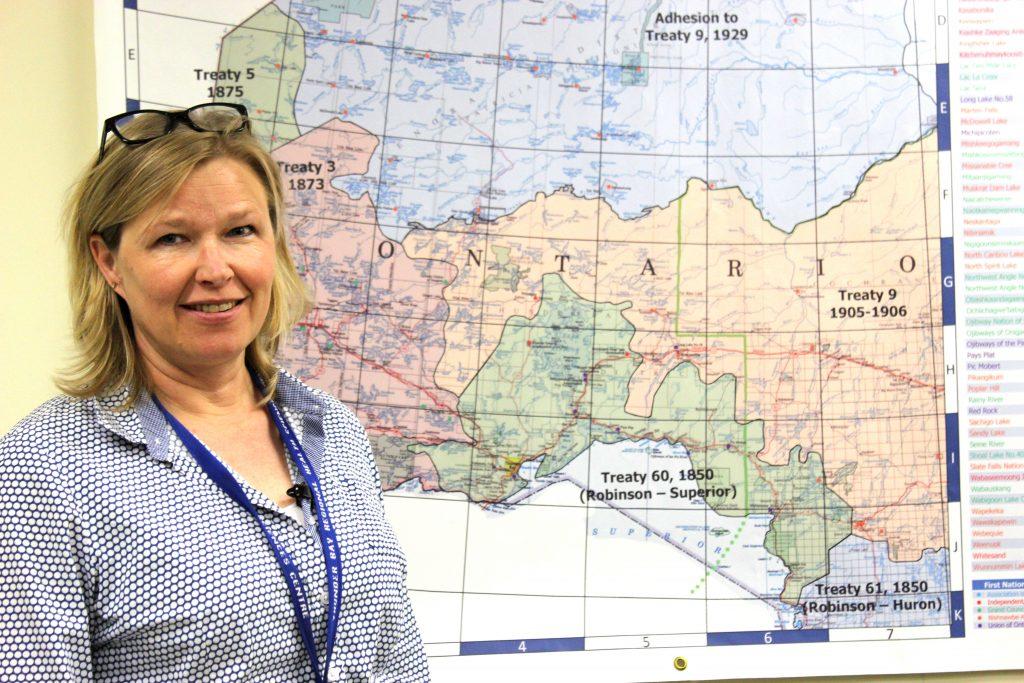Supporting Indigenous Communities to Get Screened
by Communications
 Tarja Heiskanen, Manager of Screening and Assessment Services, and the rest of the team currently work with over 45 Indigenous communities across Northwestern Ontario.
Tarja Heiskanen, Manager of Screening and Assessment Services, and the rest of the team currently work with over 45 Indigenous communities across Northwestern Ontario.Cancer screening is the key to detecting cancer early, when it is the most treatable. Unfortunately, accessing screening services can be far more challenging for those living in remote, Northern communities. Thunder Bay Regional Health Sciences Centre has taken a new, more inclusive approach in order to help improve access to potentially life-saving cancer screening services for Indigenous communities.
“Screening leads to early detection of cancer, which will often be the difference between recovering from or dying of cancer,” said Cathy Paroschy Harris, Director of Prevention and Screening Services. “Everyone should have access to cancer screening and have the opportunity to fully understand its importance. We need to do as much as we can to ensure access to screening in our geographically challenging area is as equitable as possible.”
Prevention and Screening Services promotes and educates the public and primary care providers about cancer prevention and cancer screening in Northwestern Ontario. They also provide cancer screening services to adults who are eligible to be screened, through provincial screening programs using innovative approaches to technology like the Screen for Life Coach.
The Coach provides patients with access to three organized cancer screening programs; breast, cervical, and colorectal. It travels across Northwestern Ontario – including remote Indigenous communities – where the geographic distance from hospitals has typically kept rates of these potentially life-saving screenings down. Where colorectal and cervical cancer screening is available across Northwestern Ontario, the Coach is the only mobile mammography screening service to Indigenous communities. Prevention and Screening Services continues to embrace and grow the practice of empowering Indigenous communities to get more involved and help increase the number of people taking advantage of screening services.
“Our community driven approach to screening and education involves working closely with Indigenous communities to earn their trust and learn from them about how they want to receive our services,” said Tarja Heiskanen, Manager of Screening and Assessment Services. “It’s an ongoing process of identifying what has worked in the past and how we can build on those successes together. Essentially, the communities design how they want our services to run and how those services should be promoted. Our goal is to build on the strengths of each community and be as flexible and responsive as we can to address specific needs.”
The community based approach relies on partnership and collaboration between Prevention and Screening Services and communities, and involves working closely with Indigenous health centres, chiefs, and the community members themselves. This has required a great deal of education and commitment from the Prevention and Screening Services team, who continue to undergo cultural competency, relationship building and sensitivity training in order to strengthen trust and communication.
The Prevention and Screening Service currently works with over 45 Indigenous communities across Northwestern Ontario. To learn more, please visit http://tbrhsc.net/programs-services/prevention-and-screening-services/screening/.